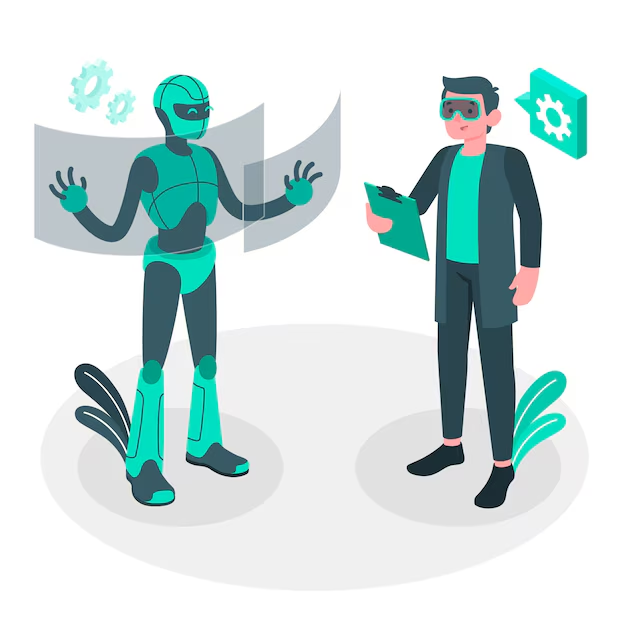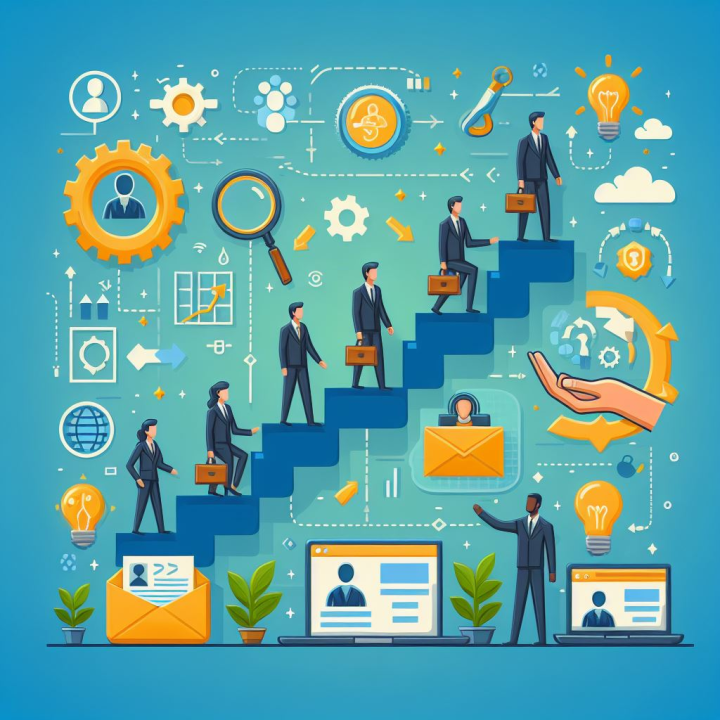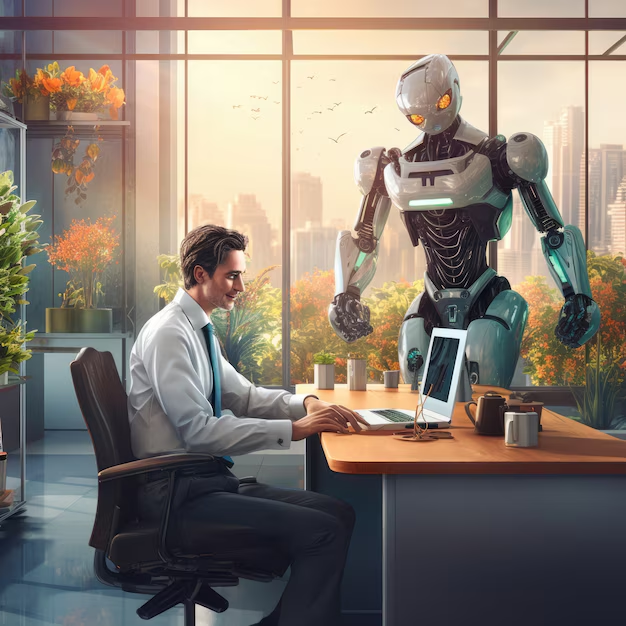Recruitment has always been a human-centric process, where intuition, judgment, and relationships play a significant role. However, with the rise of Artificial Intelligence (AI), the landscape is rapidly evolving. From automating tedious tasks like resume screening to advanced predictive analytics for candidate matching, AI is pushing the boundaries of recruitment efficiency. But does AI truly outshine human recruiters in every aspect? Or is there still a role for human intuition and emotional intelligence?
In this article, we will explore how AI and humans each excel in different facets of the recruitment process. Together, they create a powerful synergy that enhances hiring efficiency and decision-making. Let’s dive into the future of recruitment – where AI and humans collaborate to build the workforce of tomorrow.
What AI Brings to the Table: Efficiency, Data, and Scalability
AI’s impact on the recruitment process cannot be overstated. From resume screening to predicting candidate success, AI brings incredible benefits to the table. Let’s break down the key advantages of using AI in recruitment:
Speed and Efficiency in Recruitment
![]()
In traditional recruitment, sorting through hundreds or even thousands of resumes is time-consuming. AI, however, is designed for speed. It can scan and analyze resumes in seconds, identifying key skills, qualifications, and keywords that match the job requirements. For instance, AI can automate the initial stages of the recruitment process, sifting through resumes to pinpoint the best-fit candidates.
This reduces the workload for human recruiters and ensures that no qualified candidate is overlooked due to human error or oversight. Moreover, AI can automate routine tasks like interview scheduling and follow-up emails, saving recruiters significant amounts of time and allowing them to focus on more strategic aspects of hiring.
AI in Resume Screening: Precision and Unbiased Decisions
Bias in hiring is a persistent issue. AI can reduce this by focusing solely on a candidate’s skills and qualifications, eliminating unconscious biases related to gender, age, ethnicity, or other personal characteristics. The objective nature of AI ensures that every candidate is evaluated fairly based on data-driven metrics, not subjective human preferences.
However, it’s important to note that AI’s effectiveness depends on the quality and diversity of the data used to train it. If the training data is biased, AI could inadvertently perpetuate those biases. This is why human oversight remains critical in ensuring that AI’s impact is positive.
Predictive Analytics: Making Data-Driven Decisions
AI doesn’t just analyze resumes; it also uses data to predict which candidates are most likely to succeed in a role. By examining historical data such as previous job performance, industry experience, and skills alignment, AI can help recruiters assess how well candidates might fit into a particular role.
Predictive analytics helps recruiters make data-driven decisions that reduce hiring risks and improve long-term retention. In turn, businesses benefit from better workforce planning and reduced turnover costs.
Scalability in Recruitment
One of the most powerful aspects of AI is its scalability. Whether you need to process 100 or 10,000 applications, AI can handle it all without breaking a sweat. This is particularly beneficial for large companies or businesses that need to fill a high volume of positions quickly. AI can automate the candidate screening and shortlisting process, allowing human recruiters to focus on the top candidates.
Where Humans Excel: Emotional Intelligence, Creativity, and Relationship Building
While AI offers tremendous advantages in terms of speed, efficiency, and data analysis, there are certain areas where human recruiters continue to outperform machines. Let’s explore the strengths of human recruiters:
The Power of Emotional Intelligence
Recruitment is not just about matching skills to a job; it’s about finding the right cultural fit. Human recruiters excel in this area, as they can read emotional cues, body language, and tone during interviews. These non-verbal signals are critical for understanding a candidate’s enthusiasm, attitude, and whether they align with the company’s culture.
AI may be able to assess qualifications, but it cannot gauge a candidate’s personality or predict how well they will fit into a team. This is where human intuition and emotional intelligence shine, helping recruiters identify candidates who will thrive within a company’s unique environment.
Creativity and Problem-Solving in Recruitment
![]()
Human recruiters are adept at thinking outside the box. They can adapt to unexpected situations, such as when a candidate doesn’t meet every single requirement but shows immense potential in other areas. Humans have the ability to make creative, intuitive decisions that AI simply cannot replicate. This is crucial in a dynamic recruitment process where flexibility and the ability to solve problems quickly can lead to finding the perfect candidate.
Building Meaningful Relationships
Recruitment is not just a transactional process – it’s about building relationships. Human recruiters are skilled at establishing rapport with candidates, making them feel valued and appreciated. This relationship-building is vital for employer branding and for ensuring that candidates feel motivated and confident in their career choices.
AI, while efficient, cannot create the same emotional connection. It lacks the ability to inspire trust and make candidates feel like they are part of a community. Human recruiters bring that personal touch that is essential for maintaining positive relationships and nurturing talent over time.
The Best of Both Worlds: AI and Human Collaboration in Recruitment
The future of recruitment is not about choosing between AI and humans—it’s about leveraging the strengths of both to create a more efficient, effective, and human-centered recruitment process.
AI and Human Collaboration: A Symbiotic Relationship
AI excels in areas like speed, scalability, and data analysis, while humans bring emotional intelligence, creativity, and the ability to form deep relationships. The best recruitment process will combine the strengths of both.
Imagine AI as the fast and efficient sidekick, quickly scanning resumes, analyzing data, and identifying the top candidates. Meanwhile, human recruiters focus on cultural fit, making intuitive decisions, and engaging with candidates on a deeper level.
At Uni Connect, we’ve embraced this synergy, using cutting-edge AI technology to supercharge our recruitment process. By automating routine tasks and providing data-driven insights, AI helps us identify the right talent quickly and accurately. Meanwhile, our human recruiters ensure that every candidate is assessed holistically, taking into account their potential, personality, and how they will fit within the company’s culture.
Achieving Better Hiring Outcomes
![]()
This AI and human partnership leads to better hiring outcomes. Candidates are more likely to succeed in roles where their skills align with both the job requirements and the company culture. Employers benefit from faster, more efficient recruitment, with reduced bias and improved decision-making.
Embrace the future of recruitment today—combine the power of AI with human insight to build a faster, fairer, and more effective hiring process. Strengthen your workforce now. Contact us to get started!
FAQs
1. How does AI improve the recruitment process?
AI improves recruitment by automating tasks like resume screening, candidate matching, and interview scheduling. It also uses predictive analytics to make data-driven hiring decisions, improving efficiency and scalability.
2. Can AI eliminate bias in hiring?
AI can help reduce certain types of bias by focusing solely on skills and qualifications. However, if AI is trained on biased data, it can perpetuate those biases. Human oversight is essential to ensure fairness in the recruitment process.
3. What role do human recruiters play in AI-driven recruitment?
Human recruiters provide emotional intelligence, assess cultural fit, and build relationships with candidates. While AI handles repetitive tasks, humans ensure that hiring decisions consider factors beyond data points, such as personality and potential.
4. How can AI and humans collaborate in recruitment?
AI can handle tasks like resume screening and data analysis, while human recruiters focus on assessing candidates’ cultural fit, making intuitive decisions, and building rapport. This collaboration leads to faster, more accurate, and human-centered hiring.



